
1 The slave who married her master
A second-century tombstone highlights the contradictory nature of relationships in Roman Britain
As is so often the case when exploring the past, we have a clearer picture of the lives of men - particularly Roman soldiers - on Hadrian's Wall than of the women who lived alongside them. Yet artefacts found on the frontier reveal much about the varied experiences and backgrounds of women in the society that emerged in Britain's military zone.
One most intriguing example is an elaborate gravestone of the mid-to-late second century AD, from the cemetery outside the Roman fort of Arbeia (South Shields). It depicts a woman, dressed in all her finery, sitting with her spindle on her lap. The Latin inscription beneath this picture of domestic comfort and industry tells us this is Regina, a freedwoman, wife of Barates from Palmyra (Syria) and a member of the Catuvellauni tribe, who died at the age of 30. Beneath, a line in Palmyrene laments: "Regina, freedwoman of Barates, alas!"
This tombstone reveals the complex and ambiguous nature of relationships in the Roman world, particularly in Britain, on the empire's north-western frontier. Here is a woman from the peaceful south of Britain - the Catuvellauni tribe were based around Verulamium, near modern-day St Albans - who was enslaved, and bought by a man from Syria. At the time of her death, he had granted her freedom and regarded her (in Latin, at least) as his wife. However, neither Regina nor Barates was a Roman citizen, so any form of marriage they may have contracted would not have been recognised under Roman law.
Barates may have been a merchant, and the style of the gravestone suggests that it was the work of a Palmyrene craftsman, implying the existence of a Syrian community in Arbeia.
Denne historien er fra August 2022-utgaven av BBC History UK.
Start din 7-dagers gratis prøveperiode på Magzter GOLD for å få tilgang til tusenvis av utvalgte premiumhistorier og 9000+ magasiner og aviser.
Allerede abonnent ? Logg på
Denne historien er fra August 2022-utgaven av BBC History UK.
Start din 7-dagers gratis prøveperiode på Magzter GOLD for å få tilgang til tusenvis av utvalgte premiumhistorier og 9000+ magasiner og aviser.
Allerede abonnent? Logg på

Viking mussels
ELEANOR BARNETT digs into archaeological research to recreate a Viking-cum-AngloSaxon seafood dish from medieval York
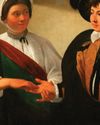
Fingers, frog's and fairies
Fortune telling was all the rage in the 16th and 17th centuries, and practitioners would stop at nothing to tap in to the supernatural. Martha McGill tells a story of Highland seers, tarot cards and encounters with the spirit world
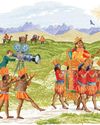
Nothing matches being with Alexander the Great on foot in the Hindu Kush
AT OUR LITTLE FILM COMPANY, MAYA VISION, we recently took the decision to digitise all of the rushes of our key films so that we could dispose of hundreds of boxes of tapes that had been kept in storage, throwing out stuff we thought we would never need again.

Library of the dead
Highgate Cemetery, created as a fashionable resting place for wealthy Victorian dead, is a veritable who's who of London's great and good. PETER ROSS roams the avenues of this most atmospheric necropolis
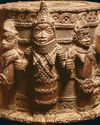
Slavery, exploitation and racism. These tragedies have long dominated histories of Africa. But there's another way to tell this story. And it's one that puts Africans right at the centre of their continent's extraordinarily rich and vibrant past
An 1414, in the Chinese city of Nanjing, a giraffe caused a stir. Amid a crowd of shocked, noble spectators, an official, leading the creature via a rope tied round its face, presented it to China's Yongle emperor. His officials said it was a qilin - an auspicious unicorn - which his sage governance had made appear.

England's forgotten hero
When the Hundred Years' War was reaching a climax, one man was fighting tenaciously to secure the English claim to the French crown. So why, asks Joanna Arman, is Henry V's formidable brother, John, Duke of Bedford, not better known?
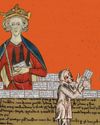
HENRY III AND THE MAGNA CARTA THAT MATTERED
King John's sealing of a charter at Runnymede in 1215 is one of the most feted moments of the Middle Ages. Yet, writes David Carpenter, it was the charter issued by his son 10 years later that became fundamental to England's history
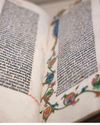
Gutenberg publishes a pioneering new book
‘The printing press triggers an information revolution
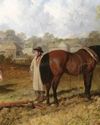
How empire ruptured rural Britain
We know that enslaved Africans and their descendants suffered in the distant colonies of empire. But, as Corinne Fowler explains, the colonial system also had dire impacts on people in the countryside of the 'motherland'
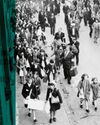
"I FELT VERY ALONE IN A WORLD GONE HORRIBLY MAD"
It was a moment of possibilities, dislocation and dread. Dan Todman tells the story of the 1.5 million urban Britons evacuated to the countryside at the start of the Second World War